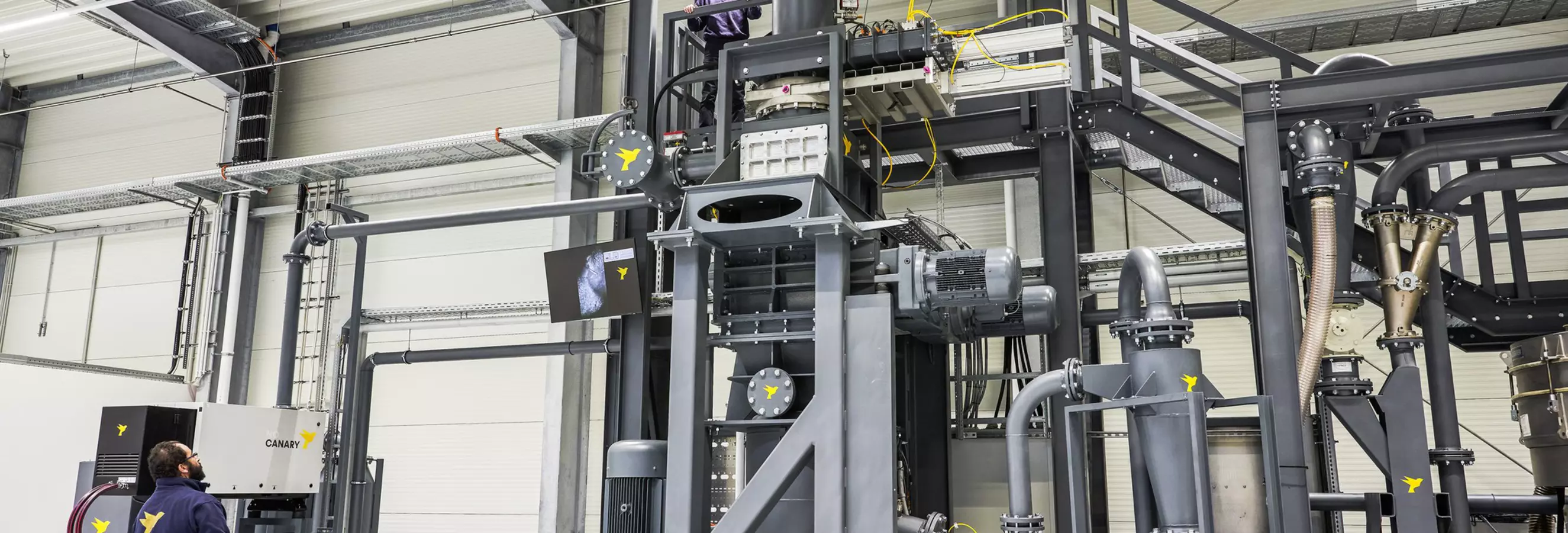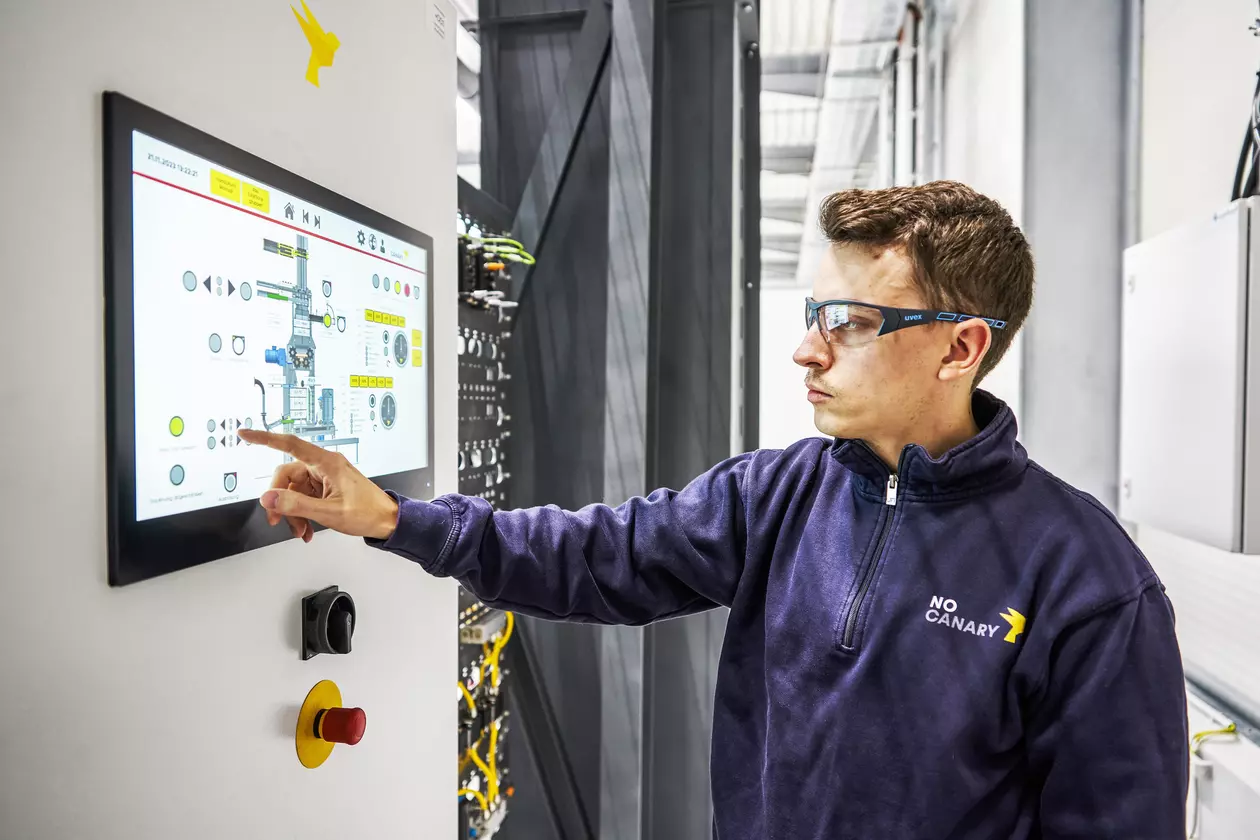High-performance plug-and-play recycling systems processing lithium-ion batteries


Helge Alten
Pozíció: Sales Engineer, HARTING Germany
- Cég: HARTING Technology Group
The Salzgitter-based company No Canary is tackling this challenge and has developed the "OCTOPUS System": these recycling plants shred lithium-ion batteries in a vacuum chamber and then process the output into a raw material concentrate, which is also referred to as the so-called “black mass”. The absolute pressure in the shredder is rated at 5 mbar, which - following the shredding of the cells - enables gentle vaporisation at low temperatures, thereby accelerating the drying process and stepping up the throughput of the entire system.
Safe, secure and reliable battery discharging
Before recycling can get started, however, the lithium-ion batteries must be completely discharged. This cannot be achieved by way of the vehicle's own connectors. No Canary has specially developed a touch-safe discharge unit for this purpose, which consists of two 35 mm² conductors, M8 eyelets and a Han-Eco® 6B grommet housing. The power is transmitted to the company's own grid by way of a Han® 100 A module (< kV). The mating partner is accommodate in a Han-Eco® 6B coupling housing.
When the cells are discharged, the operators remove the coupling housing from the discharge unit and replace it with a short-circuit bridge. This also consists of a Han-Eco®, which is fitted with a power module and a small circuit board. This lights up a red LED as long as the electrolyte in the cells is still active. "Deep discharge and short circuits cause the lithium to migrate back into the cathodic active materials and the electrochemical potential is fully degraded. The battery is then deactivated," as No Canary explains.
The connectors contribute to safe operations. If the short-circuit bridge is accidentally connected to a charged cell, a fuse protects users against cable melting and damage to the system. Moreover, infrared and visual cameras monitor the processes in the unloading chambers. These are connected to the network by way of Han-Modular® RJ45 cable assemblies (including new Domino modules). In this way, the cameras can be designed as highly compact and space-saving components.
Exceptionally eco-friendly solution
No Canary is pursuing the aim of building recycling lines that are as efficient, clean and safe as possible: On the one hand, the components of the batteries, i.e. lithium, cobalt, nickel, copper, graphite, aluminium, organic carbonates and manganese, are to be recovered as completely as possible. The company reports recycling efficiencies in excess of >95% in terms of lithium battery cells and >99% with regard to the black mass, which is later broken down into its raw material components by specialised companies in the chemical industry.
High economic efficiency
However, No Canary also ensures that as much energy and other cost factors as possible are saved in the recycling process, which is where the vacuum process plays to its strengths: Unlike recycling processes to date, the lithium-ion batteries do not have to be thermally pre-treated, thereby saving time and energy. According to the company’s information, the start-up ranks as the first and only provider of the vacuum shredding process on an industrial scale to date.

24 hours subsequent to deep discharge, the cells can be dismantled, recyclable materials sorted out and the remains shredded. After separating the organic solvents from the electrolyte, the dried shredded material is broken down and divided into further fractions. One of these is the Black Mass containing the coveted raw materials ready for new battery cells.

Detlef Sieverdingbeck
Pozíció: General Manager Corporate Communication & Branding
- Osztály: CCB
- Cég: HARTING Stiftung & Co. KG